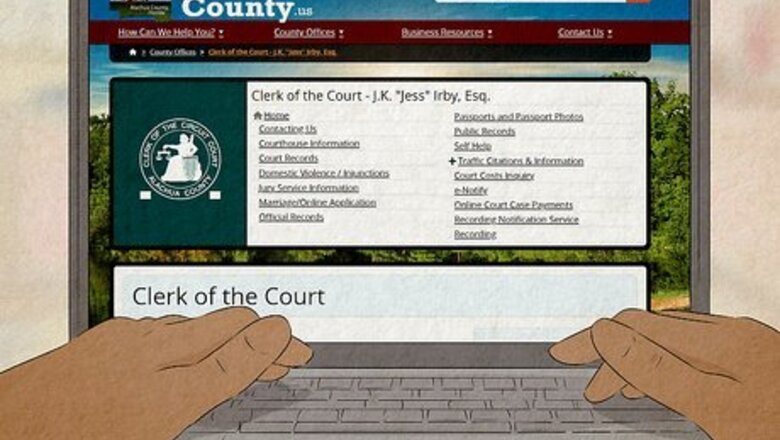
views
X
Research source
And, as of January 2015, anyone can get married in Florida—regardless of their gender or sexual orientation.[2]
X
Research source
- Go with your spouse-to-be to the county clerk's office of the county where your ceremony will be performed to get your marriage license.
- Take a premarital preparation course from a registered provider so you don't have to wait 3 days to get your license.
- Hold the required ceremony within 60 days of the date your license is issued, then give your license to your officiant to register.
Getting Your Marriage License
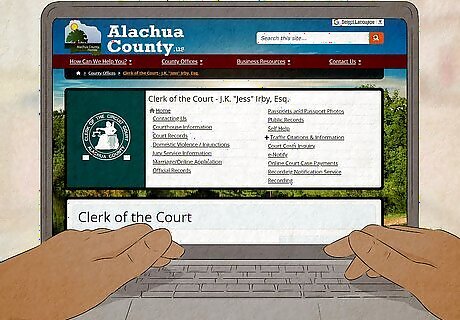
Check the website of the county's clerk of court. Identification requirements do vary from county to county. Each county has its requirements listed on its website. Just search "clerk of court" with the name of the county to pull up the site. Which county? If you live in Florida, it's usually going to be easiest to just get your license from the clerk of court in the county where you live. If you don't live in Florida, go to the clerk in the county where you're having your ceremony. If either spouse is 17, they must have the permission of both parents and cannot marry anyone more than 2 years older than they are. There are no residency or citizenship requirements to apply for a Florida marriage license.

Complete a premarital preparation course. If both you and your spouse are Florida residents, taking a prep course allows you to skip the 3-day waiting period to get your license. Call the county clerk's office to get a list of registered providers in the county so you can pick the course that works best for you. Many of these courses can be taken completely online, so don't worry if you live in a different county. The course takes about 4 hours to complete. Non-Florida residents are exempt from the prep course requirement.

Visit the clerk's office with your future spouse. Typically, all you need is a government-issued photo ID from each of you to prove who you are. This includes driver's licenses and passports. Each of your IDs must include your full legal names, dates of birth, and signatures. The two of you don't have to bring your Social Security cards with you, but you will need to put your Social Security numbers on the license. If you don't have a Social Security number, use your alien registration number instead. Both of you must sign an affidavit indicating that you've read the Family Law Handbook.
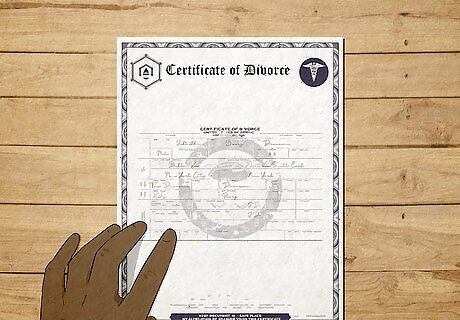
Provide proof of divorce or death of any previous spouses. Some counties don't require copies of divorce decrees or death certificates, but you do need to know the exact date the marriage ended and the manner in which it ended. If you do need these documents and don't have copies handy, order them from the health department or clerk of court in the state or county where the death or divorce took place.

Pay the license fee. As of 2023, the marriage license fee is $86, discounted to $61 if you've completed a prep course. Most clerk's offices take credit or debit cards but call ahead and ask what methods of payments are accepted. Cash is usually the easiest option. The clerk's office will also perform your ceremony for an additional fee, so ask about that if you need it. You typically need an appointment.
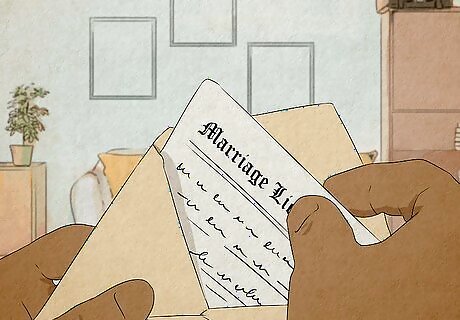
Receive your license immediately if you took a prep course. Once your license is issued, there's a 3-day waiting period before you can pick it up, unless you have a certificate of completion for a qualifying prep course. If you took a prep course, the clerk will give you your license when you pay the fee. If you didn't take a premarital preparation course, pick up your license any time after the 3-day waiting period is up. Keep in mind it's only valid for 60 days, so pick it up as soon as possible.
Having Your Ceremony

Schedule your ceremony within 60 days of the date your license was issued. A marriage license issued by the clerk's office in any county in Florida is valid for 60 days. Make sure your ceremony takes place within this time frame or you'll have to get another license issued (and pay an additional fee).

Hire an officiant to administer the marriage. Many clerk's offices also perform civil ceremonies by appointment. If you're planning your own ceremony, though, you'll need to hire one of the following for your marriage to be legal in Florida: An ordained minister, priest, rabbi, or other ordained clergy A judge presiding in the state of Florida A Florida clerk or deputy clerk of court A public notary of the state of Florida

Take your vows as spouses. Florida law does require that you have some sort of ceremony in which the two of you exchange wedding vows. But your ceremony is all about you as a couple, so it can be as simple or as complex as you want. If neither of you is religious, it doesn't have to be a religious ceremony to meet the state requirements. Florida has a sample ceremony script available that you can use if you want.
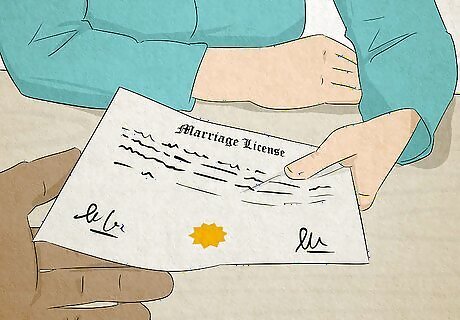
Give the license to your officiant so they can send it to the clerk's office. Most clerk's offices include detailed written instructions and a self-addressed envelope to help your officiant complete this task. Basically, all they have to do is sign it and send it back to the clerk's office. Your officiant has 10 days to do this after completing the ceremony. The clerk's office mails you a certified copy of your marriage certificate. Keep it with your other important personal documents.
Planning Your Florida Wedding

Reserve space as early as possible. Demand for Florida wedding venues is extremely high and many are backlogged and overbooked. While cancellations and postponements might leave openings, if you want a famous venue, try to book it at least a year in advance.
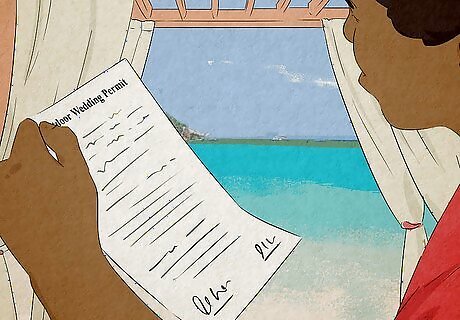
Get a permit for outdoor weddings on public property. If you're going to have 20 or more people at your wedding, get a permit from the city or county where you plan to have your wedding. This regulation applies to all public property, including beaches. Each city's website has more information on how to get a permit—it might be something you can easily do online if you know the location you want. If you want to have your ceremony at a state park, reach out to the particular park for more information and to get a permit or reserve a specific location for your event. If you're having an outdoor ceremony, have a contingency plan in place in case the weather doesn't cooperate.
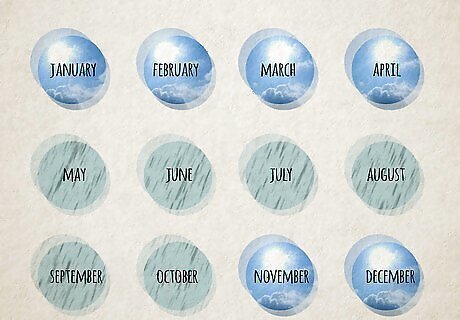
Pay attention to seasonal weather when planning your ceremony. Florida is well known for its hot, subtropical climate. Keep the seasonal weather patterns in mind, especially if you want to have an outdoor ceremony. As a general rule: The wet season lasts from May to October for most of the state. The dry season lasts from November to April, with clear skies and lower humidity.
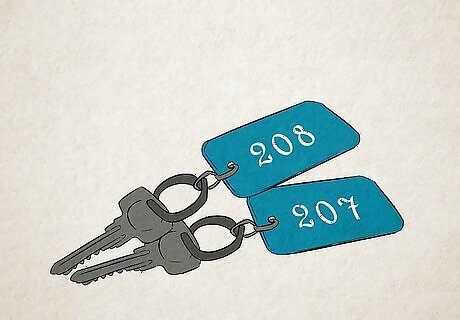
Reserve a block of hotel rooms nearby for traveling guests. If you have a lot of guests traveling from far away, a block of hotel rooms just makes sense. This saves your guests the hassle of booking a room on their own. Plus, group rates can be anywhere from 10% to 40% cheaper than the regular room rate, so it's a bargain! Hotel blocks work great if you have other events planned. All of your guests will be in one place and can easily coordinate plans with each other. If you're having your wedding on the beach, you might also try renting 1 or 2 large beach houses instead of hotel rooms.

Provide a list of local attractions for guests coming from out of town. If your Florida wedding is also a destination wedding, make sure your guests are entertained for their entire stay. Lists of local attractions help them plan and coordinate their own mini-vacation around your wedding. It's great to have a few group events, but don't book all of your guests' time—give them the freedom to explore on their own. Remember, people don't enjoy the same things. Include some low-cost or free attractions on your list for the budget-conscious.




















Comments
0 comment